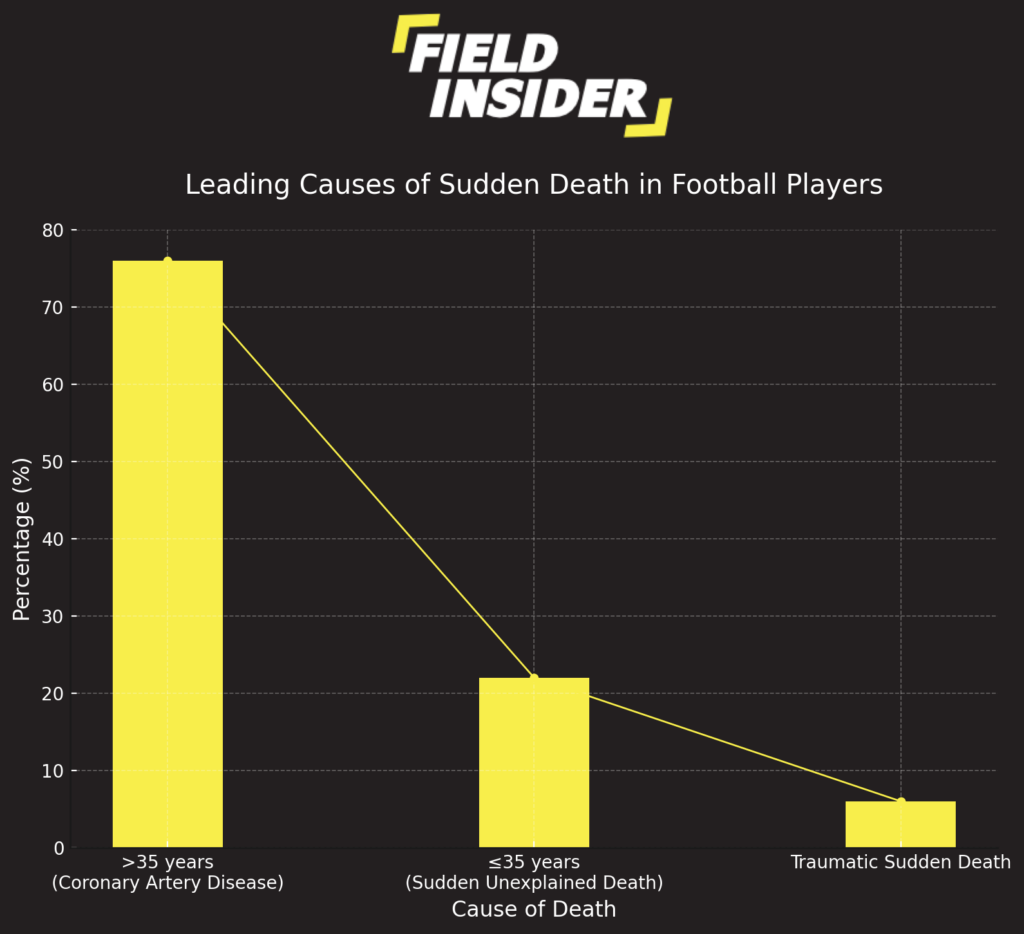Why Do Footballers Wear Black Armbands? An Understanding
Footballers wear black armbands to show respect and empathy in response to a tragedy, symbolizing mourning or solidarity with those grieving. This practice is particularly prominent in Western culture.
Globally, football organizations continually strive to highlight respect as a core value of the sport. Many players actively demonstrate this through their actions and influence.
Recognizing their public impact, these players use their visibility to make meaningful statements. For instance, players wear black armbands, a gesture that aligns with this ethos.
key TakeawayS
| Key Takeaway | Details |
|---|---|
| Historical Origins | Began in early 20th century as a sign of mourning and respect. |
| Symbolism | Black color represents mourning, unity, and empathy, connecting players and fans. |
| Occasions for Wearing | Worn during funerals, to commemorate tragedies, or mark significant events. |
| Process and Protocol | Guided by specific protocols and cultural variations around the world. |
| Misconceptions | Not a form of protest or political statement, but strictly for honor and remembrance. |
Historical Origins of Black Armbands in Football
The practice of wearing black armbands in football began in the early 20th century. Initially, it was a way for players to honor colleagues or significant figures in the sport who had passed away. Over time, this expanded to include tributes to victims of tragedies and significant national or international events.

Where it all started
The black armband was first used as a mourning symbol in 1770s England. All men and male children in England were expected to wear black suits and black armbands from 1795 to 1830.
Mourning attire was at its peak during Queen Victoria’s reign in England from 1837 to 1901. Following the death of the Queen’s beloved husband, Albert, in 1861, all royal servants were ordered to wear black crepe armbands in his honor for at least eight years.
Significance and Symbolism Of The Black Armband
The tradition of wearing black armbands in football is steeped in deep symbolism and significant emotional resonance. The color black, universally recognized as a symbol of mourning and remembrance, imbues these armbands with a profound sense of respect and dignity .

A Universal Symbol of Mourning
- Cultural Universality: Across cultures and societies, black has long been associated with mourning and grief. In the context of football, black armbands serve as a visual expression of loss and sorrow.
This shared understanding transcends language and cultural barriers, making it a universally recognized gesture. - Historical Consistency: The consistency of this symbol throughout history adds a layer of dignity to football matches where these armbands are worn. They serve as a reminder that, despite the passage of time, some traditions remain deeply rooted in our collective consciousness.
Connecting Players and Fans
- Shared Emotions: When footballers wear black armbands, it’s not just a personal gesture but also a shared emotional experience with the fans.
This shared moment of silence or remembrance during a match can be incredibly powerful, creating a unique bond between the players on the field and the spectators in the stands. - Empathy and Solidarity: The armbands symbolize a collective empathy, extending beyond the individual to encompass the team, the fans, and often, the wider community.
A Silent Yet Powerful Message
- Non-Verbal Communication: The black armband is a form of non-verbal communication that conveys a powerful message without the need for words. In moments of tragedy or remembrance, they speak volumes about the football community’s capacity for respect and reflection.
- Visibility and Awareness: Wearing black armbands can also bring visibility to certain events or causes, raising awareness among fans who might not be informed. This visibility is crucial in fostering a sense of global community and shared humanity within the sport.
The wearing of black armbands in football is a tradition rich in significance and symbolism. It is a practice that strongly expresses grief, respect, unity, and remembrance, connecting players, fans, and communities in moments of shared emotional experience.
When Should Footballers Wear Black Armbands?
Black armbands are worn in various scenarios;
Funeral and Memorial Services
It is common for players to pay tribute to people who have played an important role in their lives or careers. When one or more of the teammates suffers a tragic death or the loss of someone important in their lives, all of the players show compassion and unity.
Jack Charlton | 1966 World Cup Winner
In 2020, Premier League clubs paid tribute to 1966 World Cup winner Jack Charlton, who passed away at the age of 85. Players honored the England national team player and national hero by wearing black armbands in his honor.
John Steven Taylor | Blackburn Rovers Supporter
In 2010, Blackburn Rovers commemorated the death of a team fan who died of a head injury while attending a game. John Steven Taylor was a huge Blackburn Rovers fan, and the entire team saw this as a great tragedy for them. Two minutes of silence were observed, and football players wore black armbands during their game against Hull.
Kobe Bryant | NBA Superstar
AC Milan paid tribute to the late Kobe Bryant, one of the best basketball players of all time and an All-Star legend. Bryant died on Sunday 26th January 2020 alongside his daughter Gianna and seven others in a helicopter crash in Calabasas, California.
Kobe Bryant was a known football fan who grew up supporting AC Milan and frequently spoke about his love for the game. AC Milan showed their respect by wearing black armbands during their Coppa Italia match against Torino.
At this game, Torino players also wore black armbands. Ronaldo, Messi, Neymar, Lukaku, and Mbappe are among the players who have paid tribute to an NBA legend.
Princess Margaret | Countess of Snowdon
The England national team paid their respects to Queen Elizabeth’s sister, Princess Margaret, who died tragically. In 2002, she died of a stroke. In her honor, the English team wore black armbands during their friendly match against the Netherlands in the Amsterdam Arena.
English footballers wore black armbands during the game as a mark of respect for the Queen’s sister.

Tragedies
Acknowledging events that have impacted the world or the football community, such as accidents or acts of terror. Such as ;
after Catastrophic Events
Footballers wearing black armbands show their respect following natural disasters in their own country or around the world. These incidents are shocking and unexpected, with often disastrous consequences.
Some natural disasters affect the entire human race, and players will join the fight to raise awareness of the problem.
Tsunamis in Japan, earthquakes in Mexico, and floods in Spain are just a few of the natural disasters where players raised their voices symbolically to raise public awareness of the issues and show solidarity with the victims and their families.
Munich Air Disaster
Every year, current and former Manchester United players pay their respects to the victims of the 1958 Munich Air Disaster. A plane crash killed eight Manchester United players, three staff members, and eight sports journalists.
The plane crashed on their way back from a European Cup game against Red Star Belgrade. They are still known as the Flowers of Manchester. Manchester United players, as well as opposing team players, traditionally wear black armbands during games held around the 6th of February, the day of the disaster, as a symbol of keeping the victims’ memories alive.
Historic Events
Unfortunately, many events in our history have resulted in destruction and chaos. This includes wars, terrorist attacks, accidents, and other unlucky occurrences. As a result, it is not surprising that such dates elicit strong emotions in people, including football players, who have a strong desire to connect with others, share their pain, and show their respect to victims.
World War One Remembrance Day
It is customary in the United Kingdom to commemorate the nation’s sacrifices during World War One on November 11th, the commemorative holiday Remembrance Day. This day is a national holiday in many countries, including the United Kingdom.
As a show of solidarity and unity, players from both England and Germany wore black armbands with a poppy symbol during a friendly match in 2017. Other nations, including Wales, Northern Ireland, and Scotland, adopted this gesture and wore the same symbols during international games.
Football players in the Bundesliga and Bundesliga 2 wore black armbands to honor the victims of the 2015 Paris terrorist attacks. In addition, the Bundesliga paid tribute to the victims of a racist terror attack in Hanau.
Footballers wore black armbands as a show of respect during the game between Bayern Munich and Paderborn. Other top-tier Bundesliga and Bundesliga 2 teams all condemned the attack and sent their thoughts and prayers to the victims’ families.
Leading Cause of Sudden Death In Football Players
To investigate the underlying causes of sudden death in football (soccer) players worldwide to inform and improve existing screening and prevention measures, a reasearch named FIFA Sudden Death Report (FIFA-SDR), was commissioned by FIFA and carried out by Saarland University.

The bar chart has been created using the findings from the research conducted . It highlights the leading causes of sudden death in football players:
- For players older than 35 years, the leading cause is coronary artery disease, accounting for 76% of the cases.
- For players 35 years or younger, sudden unexplained death (SUD) is the cause for 22% of the cases.
- Traumatic sudden death accounts for 6% of the cases.
The Process of Wearing Black Armbands
In the world of football, the decision to wear black armbands is not taken lightly. It often rests with the team management or the governing bodies of leagues and tournaments. This decision-making process is guided by established protocols that ensure the gesture’s significance is maintained.
For instance, when a well-known figure in the sport passes away, or in the aftermath of a significant global event, the authorities might mandate the wearing of black armbands as a sign of respect and mourning.
This protocol connects the football community in shared moments of reflection. Adhering to these guidelines is crucial, as it underscores the respect and dignity with which the football world addresses moments of sorrow and commemoration.
Misconceptions and Common Myths
Contrary to some beliefs, black armbands in football are not a sign of protest or political statement. They are strictly used to honor and remember individuals or events. This gesture is universally accepted across the football world, transcending club rivalries and national boundaries.
Did Footballers Wear Black Armbands because of the Black Lives Matter Movement?
Footballers wearing black armbands to convey messages is another common occurrence. We saw this with the Black Lives Matter movement, as this was the message printed on black armbands worn by football players during games.
In this way, they paid their respects to George Floyd, who was killed as a result of police brutality and demonstrated their support for black people’s struggle for justice.
Conclusion
Footballers wear black armbands as a symbol of respect during a time of grief. It is also a way for people to show solidarity and connect in times of need.
Understanding the tradition of wearing black armbands in football adds depth to our appreciation of the sport.
It’s a practice that beautifully encapsulates the respect, unity, and collective mourning within the global football community. This enduring tradition continues to be a significant part of football’s cultural fabric.








